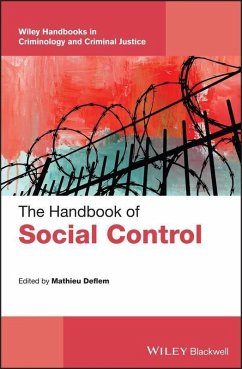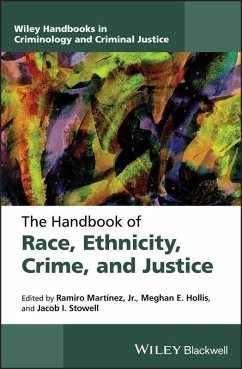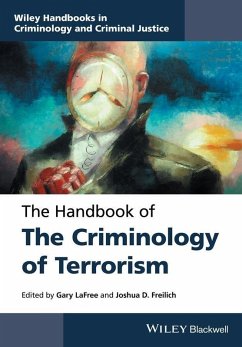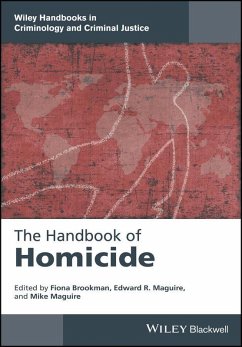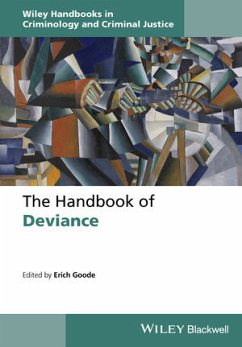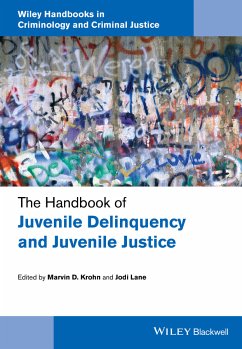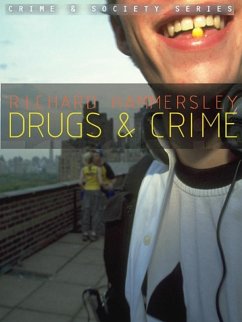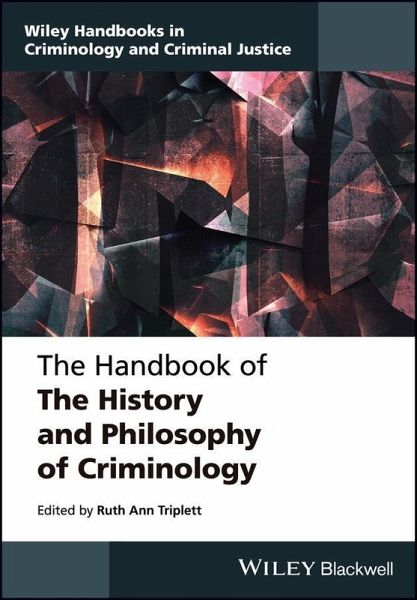
The Handbook of the History and Philosophy of Criminology (eBook, ePUB)
Versandkostenfrei!
Sofort per Download lieferbar
184,99 €
inkl. MwSt.
Weitere Ausgaben:

PAYBACK Punkte
0 °P sammeln!
Featuring contributions by distinguished scholars from ten countries, The Wiley Handbook of the History and Philosophy of Criminology provides students, scholars, and criminologists with a truly a global perspective on the theory and practice of criminology throughout the centuries and around the world. In addition to chapters devoted to the key ideas, thinkers, and moments in the intellectual and philosophical history of criminology, it features in-depth coverage of the organizational structure of criminology as an academic discipline world-wide.The first section focuses on key ideas that hav...
Featuring contributions by distinguished scholars from ten countries, The Wiley Handbook of the History and Philosophy of Criminology provides students, scholars, and criminologists with a truly a global perspective on the theory and practice of criminology throughout the centuries and around the world. In addition to chapters devoted to the key ideas, thinkers, and moments in the intellectual and philosophical history of criminology, it features in-depth coverage of the organizational structure of criminology as an academic discipline world-wide.
The first section focuses on key ideas that have shaped the field in the past, are shaping it in the present, and are likely to influence its evolution in the foreseeable future. Beginning with early precursors to criminology's emergence as a unique discipline, the authors trace the evolution of the field, from the pioneering work of 17th century Italian jurist/philosopher, Cesare Beccaria, up through the latest sociological and biosocial trends.
In the second section authors address the structure of criminology as an academic discipline in countries around the globe, including in North America, South America, Europe, East Asia, and Australia.
With contributions by leading thinkers whose work has been instrumental in the development of criminology and emerging voices on the cutting edge The Wiley Handbook of the History and Philosophy of Criminology provides valuable insights in the latest research trends in the field world-wide - the ideal reference for criminologists as well as those studying in the field and related social science and humanities disciplines.
The first section focuses on key ideas that have shaped the field in the past, are shaping it in the present, and are likely to influence its evolution in the foreseeable future. Beginning with early precursors to criminology's emergence as a unique discipline, the authors trace the evolution of the field, from the pioneering work of 17th century Italian jurist/philosopher, Cesare Beccaria, up through the latest sociological and biosocial trends.
In the second section authors address the structure of criminology as an academic discipline in countries around the globe, including in North America, South America, Europe, East Asia, and Australia.
With contributions by leading thinkers whose work has been instrumental in the development of criminology and emerging voices on the cutting edge The Wiley Handbook of the History and Philosophy of Criminology provides valuable insights in the latest research trends in the field world-wide - the ideal reference for criminologists as well as those studying in the field and related social science and humanities disciplines.
Dieser Download kann aus rechtlichen Gründen nur mit Rechnungsadresse in D ausgeliefert werden.





